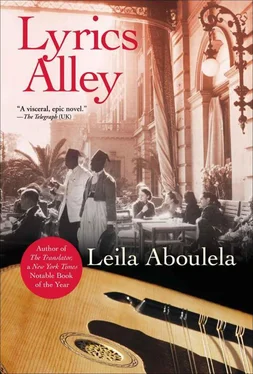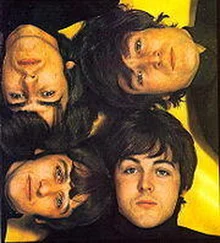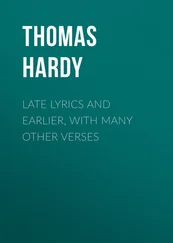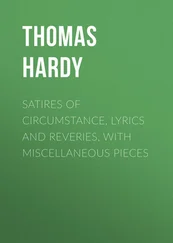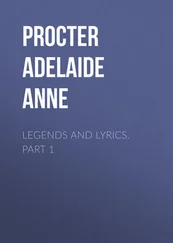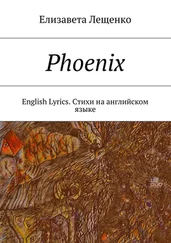Leila Aboulela - Lyrics Alley
Здесь есть возможность читать онлайн «Leila Aboulela - Lyrics Alley» весь текст электронной книги совершенно бесплатно (целиком полную версию без сокращений). В некоторых случаях можно слушать аудио, скачать через торрент в формате fb2 и присутствует краткое содержание. Год выпуска: 2011, Издательство: Grove Press, Жанр: Современная проза, на английском языке. Описание произведения, (предисловие) а так же отзывы посетителей доступны на портале библиотеки ЛибКат.
- Название:Lyrics Alley
- Автор:
- Издательство:Grove Press
- Жанр:
- Год:2011
- ISBN:нет данных
- Рейтинг книги:5 / 5. Голосов: 1
-
Избранное:Добавить в избранное
- Отзывы:
-
Ваша оценка:
- 100
- 1
- 2
- 3
- 4
- 5
Lyrics Alley: краткое содержание, описание и аннотация
Предлагаем к чтению аннотацию, описание, краткое содержание или предисловие (зависит от того, что написал сам автор книги «Lyrics Alley»). Если вы не нашли необходимую информацию о книге — напишите в комментариях, мы постараемся отыскать её.
Lyrics Alley — читать онлайн бесплатно полную книгу (весь текст) целиком
Ниже представлен текст книги, разбитый по страницам. Система сохранения места последней прочитанной страницы, позволяет с удобством читать онлайн бесплатно книгу «Lyrics Alley», без необходимости каждый раз заново искать на чём Вы остановились. Поставьте закладку, и сможете в любой момент перейти на страницу, на которой закончили чтение.
Интервал:
Закладка:
‘You will need to have a separate entrance for them,’ said Fatma scooping, with a long ladle, those pieces of falafel that were now a crunchy brown.
‘I will talk to your uncle,’ said Waheeba. ‘Nur needs more space now — not only his own entrance, but also a diwan, so that we’re not so cramped here.
Soraya edged closer to the screen. If she pressed her face close, she could see the whole of the men’s gathering. She put on her glasses and saw Nur propped up on his bed at the head of a large circle. One of the men was holding an oud on his lap and an elderly man was reciting a poem from a sheet of paper he was holding in his hand. She listened to the words, and when he finished, the comments of the others held her attention. She heard Nur’s voice. It came to her clearer than anyone else’s. She liked the look on his face; serious and happy, totally engaged. Some of the men spoke more than others, and some were quietly smoking. She saw Zaki come close to Nur and hold up a glass of water to his lips. Nassir walked in and shook hands all around, touching his brother’s elbow before taking a seat. Zaki passed round a tray full of glasses of water. Following a comment made by Nassir, the gentleman with the oud began to play and sing. It was a traditional folk song and the others nodded their heads with the melody.
When Zaki came over to the women’s area to refill the water jugs, Soraya called him over.
‘Tell me who is who,’ she whispered.
They ducked down together, for she had found a spot on the screen where several segments of wood were missing and that gave her a wider range of vision.
‘Most of them,’ said Zaki with authority, ‘are from the Poets’ Syndicate.’ He named a few names, some of which Soraya recognised. These distinguished poets, when they performed at the university, packed whole lecture halls, and now they were sitting casually in Nur’s hoash!
‘The one sitting right next to Nur,’ continued Zaki, ‘is his friend from Victoria College. Everyone calls him Tuf Tuf, but that’s not his real name.’
Soraya smiled and took a closer look at Nur’s friend. He was sitting with his legs crossed, the back of his hand rubbing against his chin as if checking for stubble.
‘Is he always that quiet?’
‘No, it’s just that he doesn’t seem to know much about poetry. He was here visiting Nur and suddenly all these others dropped by. The man with the oud is, of course, Hamza Al-Naggar. He almost comes every evening. It’s the others who are here for the first time.’
Hamza Al-Naggar started to sing Travel is the Cause and Soraya didn’t want to ask Zaki any more questions. She wanted to listen. Nur’s song. Her song. Nur joined in the singing and Hamza smiled and let him lead. ‘ Ah ya kanari wa ah ya gamari . .’ and when Nur sang Ah the ache was there for everyone to hear, and everyone to share. His passion in colloquial truth.
Soraya wanted this combination of music and poetry to last and last and to become part of the fabric of Umdurman. For every wedding party, for boys to hum in the alleys on their way to school, for schoolgirls to copy in secret notes. For lovers, not yet born, to sing in the style of their times. .
She pressed her face against the wooden screen and listened. Hamza had stopped playing his oud and there was a hush. It was Nur’s turn to recite his new poem, in his own voice, his own words.
The prettiest girl in the alley can’t stand harsh words
‘I will not shackle you to an invalid,’ her Uncle Mahmoud had said.
She’s pampered , Nur was saying, but don’t ever scold my love
She could not be Nur’s nurse. She was incapable of such a sacrifice. She would feel hard done by and ignored, she who aspired, like her Uncle Mahmoud, to a modern, upbeat life.
This, instead, was where she belonged with Nur, right here, here in his songs. Here within the lyrics they were intimate, caught in the rhythm of his words, propelled by the substance of his dreams.
These songs would be their story and these lyrics their home.
XVIII
The blow, inevitable in itself, comes straight from the source without any intermediaries. It is a direct hit which finds him defenceless, unprepared. Tuf Tuf is visiting him around sunset, a quiet time before Hamza Al-Naggar and the other poets come over for what has become an almost daily literary salon in Nur’s hoash. The focus of the salon is the connection between poetry and song, the bonus is Waheeba’s lavish dinner. Tuf Tuf is one of Nur’s friends who had not stayed away, not said, ‘I can’t bear to see him like that.’
Now he sits with his legs crossed and his knuckles hovering over his mouth. He is in his bashful mood and blurts out, ‘My mother finally selected a bride for me.’
Nur smiles. ‘Well, who is she? Have you seen her?’
Tuf Tuf, beleaguered, uncrosses his legs and crosses them again.
‘Don’t you like her?’ Nur chuckles.
Tuf Tuf doesn’t smile.
‘There is no fault in her,’ he whispers.
There is no fault in her . When Hamza sings that line on the radio it sounds boastful and joyful. But Tuf Tuf wraps the words in amazement.
It is a warning, and Nur turns to look away, as if to search for armour, to reach for shield.
‘I saw her here,’ says Tuf Tuf. ‘In one the gatherings, the day you sang Travel with Hamza. She was watching from behind the wooden screen. She didn’t think anyone could see her, but I did. I walked over to the women’s section, never mind if they thought me bold or rude. I reckoned I was here nearly every day and Aunt Waheeba would welcome me as one of the family. It was like a dream. First, I was hearing about her in your poem and aware of her behind the screen. Then, when I crossed over, there she was in the flesh. I tried to get her out of my mind; I tried hard, until my mother said her name. .’
‘No,’ says Nur. ‘No! Tell your mother to find you another bride.’
‘Why?’
‘What do you mean why? You know very well why.’
‘Now that my mother is so keen on her, I will have to come up with a reason to refuse. I will have to find fault in her choice.’
‘That is such a lame excuse. Tell her Soraya is not your type, tell her you don’t want to marry a girl from Umdurman.’ A pulse beats in his temple.
‘Nur, if it’s not me it will be another man. You know that.’
‘But you’re my friend! How dare you? How can you?’ Tears alter his voice.
‘That’s why I’m telling you,’ Tuf Tuf pleads. ‘That’s why I didn’t want you to hear it from anyone else.’
‘I want to punch you. Oh God, what would I give to shove a fist in your face!’
Tuf Tuf bolts out of the hoash.
Later, it is Nassir who seals the bitterness and what is left of the hope. He bears the formal bad news.
‘Soraya’s engaged. Your friendship with Tuf Tuf must have stood him in good stead because Father and Uncle Idris gave their consent.’
Nur opens his mouth and blackness sweeps up in front of his eyes. He wants to speak, but his voice cannot form words. He wants to scream, and the scream consumes him. He is nothing, and nothing exists but pain. He is trapped; he is squeezed. There is Nassir’s dazed, flaccid face, his stupid words of condolence. Leave me alone! Stop taking away one thing, then another, then another. Breathing is difficult and breathing unfurls the foul, ultimate question. Why me? But life still claims him, and he is pulled back against his will. Hamza’s voice when he was introducing Travel is the Cause at the National Theatre: ‘The lyrics are those of a new poet, Nur Abuzeid. I composed the tune in tribute to his talent.’
Читать дальшеИнтервал:
Закладка:
Похожие книги на «Lyrics Alley»
Представляем Вашему вниманию похожие книги на «Lyrics Alley» списком для выбора. Мы отобрали схожую по названию и смыслу литературу в надежде предоставить читателям больше вариантов отыскать новые, интересные, ещё непрочитанные произведения.
Обсуждение, отзывы о книге «Lyrics Alley» и просто собственные мнения читателей. Оставьте ваши комментарии, напишите, что Вы думаете о произведении, его смысле или главных героях. Укажите что конкретно понравилось, а что нет, и почему Вы так считаете.
